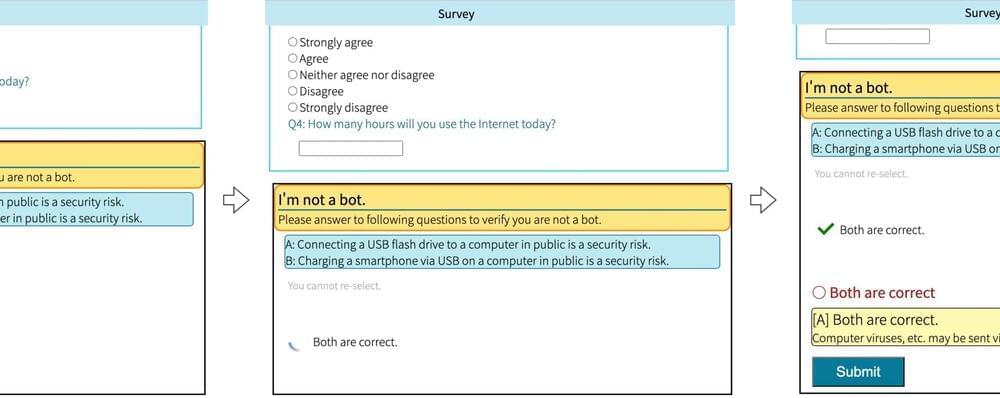Online safety and ethics are serious issues and can adversely affect less experienced users. Researchers have built upon familiar human verification techniques to add an element of discrete learning into the process. This way users can learn about online safety and ethics issues while simultaneously verifying they are human. Trials show that users responded positively to the experience and felt they gained something from these microlearning sessions.
The internet is an integral part of modern living, for work, leisure, shopping, keeping touch with people, and more. It’s hard to imagine that anyone could live in an affluent country, such as Japan, and not use the internet relatively often. Yet despite its ubiquity, the internet is far from risk-free. Issues of safety and security are of great concern, especially for those with less exposure to such things. So a team of researchers from the University of Tokyo including Associate Professor Koji Yatani of the Department for Electrical Engineering and Information Systems set out to help.
Surveys of internet users in Japan suggest that a vast majority have not had much opportunity to learn about ways in which they can stay safe and secure online. But it seems unreasonable to expect this same majority to intentionally seek out the kind of information they would need to educate themselves. To address this, Yatani and his team thought they could instead introduce educational materials about online safety and ethics into a typical user’s daily internet experience. They chose to take advantage of something that many users will come across often during their usual online activities: human verification.
